Best Vitamin C Serum Singapore: Dermatologist Guide for Sensitive Skin
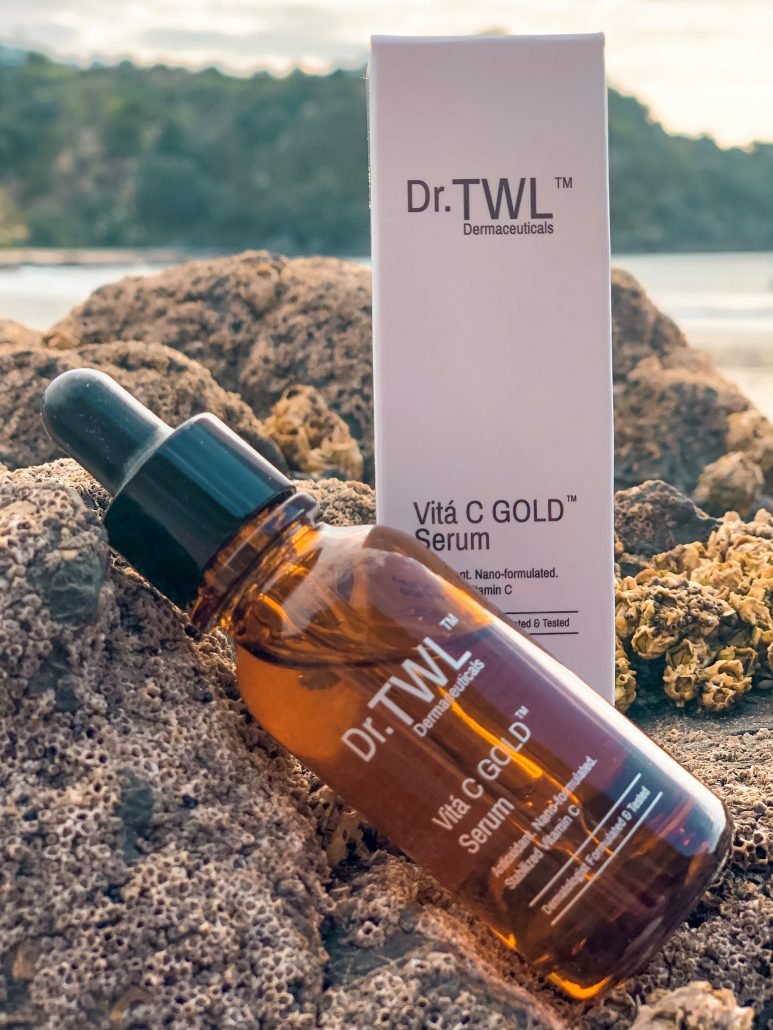
Ask a dermatologist what’s the best form of sun protection? Sunscreen it is. We all know about SPF and what SPF stands for. Do you know, however, that radiation damage is inevitable? Singapore’s tropical climate means that even if we stay indoors all day long, UV radiation can reach us through the windows. Latest dermatology research also shows that light emitted from many home LED appliances can also accelerate skin aging. Known as blue light, the research shows that those with pigmentation problems such as melasma will develop worsening pigmentation with blue light. Consequently, we explore why Vitamin C Serum is the best photo protection after sunscreen itself in particular if you live in sunny Singapore.
The benefits of using a vitamin C serum
The best antioxidant vitamin C serum can improve skin immunity. As a result, the active ingredient helps in treatment of many dermatological diseases. In addition, the best Vitamin C serum is one that works to brighten scars, even out skin tone and even treat acne. Accredited Singapore dermatologist Dr. Teo Wan Lin explains what vitamin C does, why you should include vitamin C in your skincare regimen and more. Concurrently, this article explores the link between antioxidant serums and photo protection, explaining the beauty science behind vitamin C serums.
Radiation damage causes accelerated ageing and also skin cancers
@drteowanlin Time Machine by DR TWL #AuroraLight #drtwl #drtwlpharmacy #drtwlderma ♬ original sound – Dr. Teo Wan Lin
While the fanciful idea of living in space is being considered seriously by the likes of Elon Musk, it is far more realistic to consider the other type of radiation that we as earthlings receive on a daily basis. Scientists understand cosmic radiation or space radiation to be the most lethal form of radiation. Radiation, which consists of photon particles originating from elements of the periodic table, enters the human body at energies approaching the speed of light and can damage DNA.
On earth, dermatologists are more concerned with ultraviolet radiation that penetrates skin and directly damages skin DNA. It is the leading cause of skin cancer and accelerated skin aging. Sunscreen is traditionally advocated as the main form of protection. It is vital to use a minimum SPF 30 broad spectrum sunscreen. Better still, add on potent antioxidants such as a well formulated vitamin C serum in your skincare regimen.
The best vitamin C serum can fight off DNA damage
Understanding DNA damage caused by UV radiation
Ultraviolet radiation, primarily UVA and UVB, reaches our skin and eyes. We consider it to be one of the most harmful types of radiation to human health. UVA has been linked to accelerated photo aging. On the other hand, UVB is the primary cause of skin cancers. With both types of UV rays, the key here is DNA damage. Our cells are constantly susceptible to DNA damage from environmental triggers. It is a normal part of our daily cell processes. The cancerous cells die while allowing healthy cells to proliferate, when there is an inability to repair damaged DNA, that’s when skin cancers can begin.
DNA damage is also the underlying cause of skin aging. The important thing is to not just protect your skin from UV radiation, but also to increase your natural cell reserve of antioxidants. This ensures your skin can fight against these harmful processes that lead to photo aging which increase your risk of skin cancer. Overall, this can be summed up in a concept known as skin resilience. Skin resilience essentially builds your skin’s health to the level that is able to counteract these harmful effects of radiation on skin.
UV radiation is the main cause of photo aging. As a result, many interventions for anti aging target the process of free radical production. Oxidative stress occurs leading to DNA damage. Vitamin C works as an antioxidant by donating electrons. This reduces production of free radicals. These free radicals that cause skin damage are also what we know as reactive oxygen species.
Stopping free radical damage to skin
Studies have been performed on how vitamin C treatments can affect skin that has been irradiated with our ultraviolet rays. The laboratory studies showed that vitamin C in the form of L-ascorbic acid can improve skin cell repair. These skin cells were damaged by ultraviolet rays. Vitamin C serum reduced cell damage. Cells undergo a phenomenon known as apoptosis when damaged. Application of vitamin C also reduced free radical production. This resulted in less DNA damage.
Dermatologist-recommended vitamin C serums
Studies have shown that vitamin C serum applied on skin is effective in enhancing elasticity and reducing the depth of wrinkles. Since Vitamin C is readily available in topical formulations, dermatologists recommend this is one serum you must include in your daily skincare routine.
The difference between vitamin C serums available in the Singapore market varies. Whether you get them from a reputable brand or not, does make a difference. The cost of a vitamin C serum also matters. While expensive cosmetics are not always the best, quality vitamin C serums are never cheap. If you are looking for an effective vitamin C serum, this is a dermatologist’s complete guide to making the best purchase.

Best Vitamin C serum – active ingredients matter
The active ingredients in Vitamin C serums are not labelled as Vitamin C. The active stable forms of vitamin C are commonly in the form of L-ascorbic acid. L-ascorbic acid is usually present at concentrations at 10-15%. Most dermatologist recommended Vitamin C serums contain L-ascorbic acid as the active ingredient. However, it is limited by its potential to cause skin irritation. If you have burning and stinging after applying vitamin C serum, it is likely due to L-ascorbic acid. For this reason, our skincare pharmacy formulates a vitamin C serum specifically for those with sensitive skin. Sodium Ascorbyl Phosphate is the alternative active form of vitamin C that is both stable, effective and gentle on sensitive skin.
Vitamin C used for acne treatment
Dermatologists recommend topical treatment for mild forms of acne. For moderate to severe acne, topical creams are important for reducing scars and long term maintenance. A well formulated Vitamin C serum is dermatologist recommended for acne skincare regimens. This is because it creates a hostile antioxidant environment that reduces growth of acne causing bacteria, known as P. acnes. It also lightens scars. This reduces post acne scarring. Acne scars present as redness, known as post inflammatory erythema or dark spots, known as post inflammatory hyperpigmentation. This is why other than an effective pimple cream, a topical vitamin C serum is a must have in your acne skincare regimen.
The best Vitamin C Serum for Singapore weather
It is important to know that many reputable skincare brands are formulated for temperate climates. Those suited for Asians, originate from Korea and Japan where there are 4 seasons and skin may be less exposed to high intensity sunlight. This is critical for those living in Singapore. This is because Asian skin belongs to skin of color, which means that it is more prone to post inflammatory hyperpigmentation. As a result, this makes a vitamin C serum ever more important in a skincare regimen. However, living in Singapore poses a unique dilemma for those desiring to use lighting or brightening active ingredients.
The high levels of ultraviolet light or UV rays from sunlight are unique to Singapore all year round. This can have photosensitising, or sun-sensitive side effects on skin. Retinols, alpha hydroxy acids like glycolic acids are the commonest culprit. However, it is also possible for L-ascorbic acid to cause sun induced sensitivity for certain individuals. This usually affects those with sensitive skin. If you are on treatment with acne medications, however, you can develop sun sensitivity as well. Hence, do discuss with your dermatologist the best vitamin C formulation for your skin condition.
The best Vitamin C serum formulation is one that is effective and gentle on skin
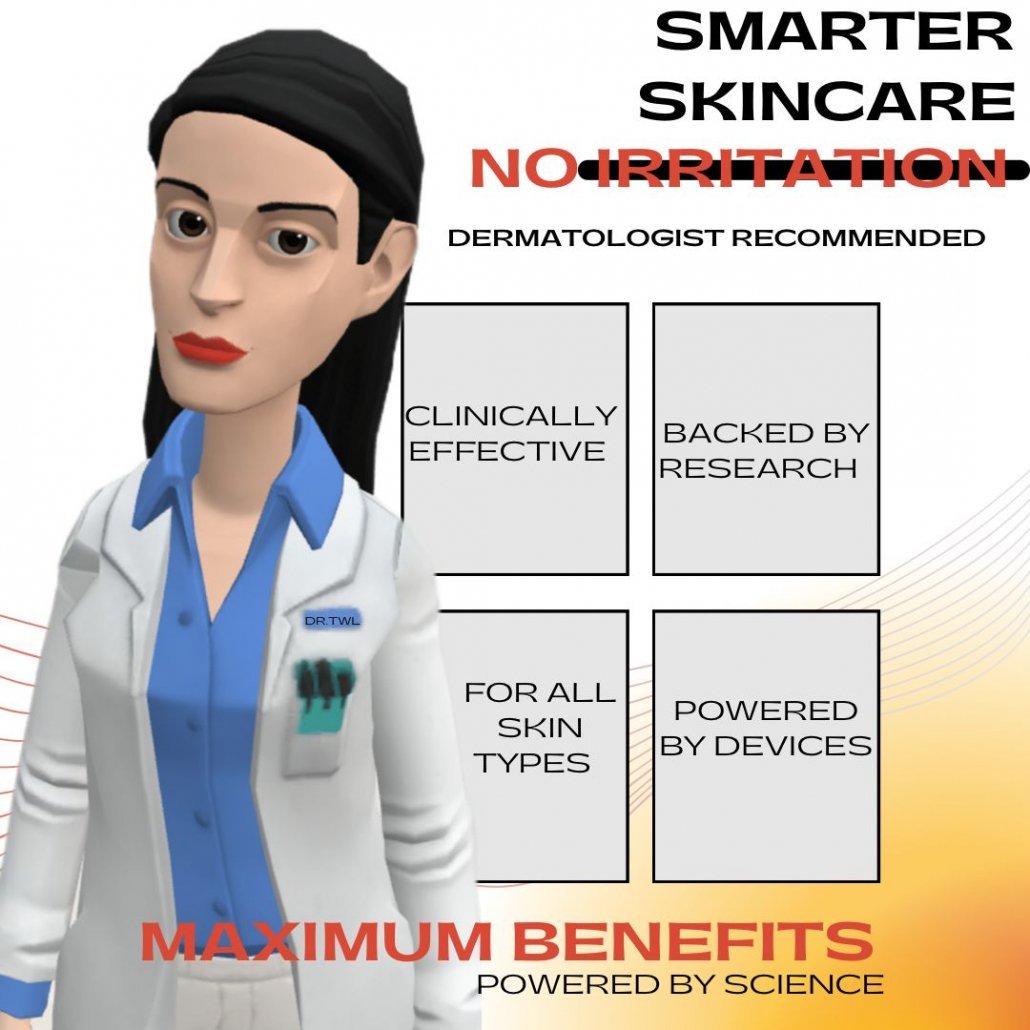
How does vitamin C benefit skin? This is why you should include vitamin C serums in your skincare regimen. As part of your daily skincare routine, vitamin C helps to increase your skin’s immunity. This means it is better able to fight off aging. In addition, using a well-formulated vitamin C serum benefits all skin types. The key is tolerability. If you have experienced skin sensitivity to vitamin C serums before, you may be sensitive to L-ascorbic acid.
Don’t let that turn you off using a well formulated vitamin C serum suitable for sensitive skin types. You may feel confused because you have acne and dry sensitive skin. However, according to Dr. Teo, many people have this condition. Acne can affect those with dry skin and eczema, although it is more common in those with oily skin. Acne pimple creams can also dehydrate the skin, causing dermatitis. If you use an L-ascorbic formula of Vitamin C serum, this may worsen the skin irritation.
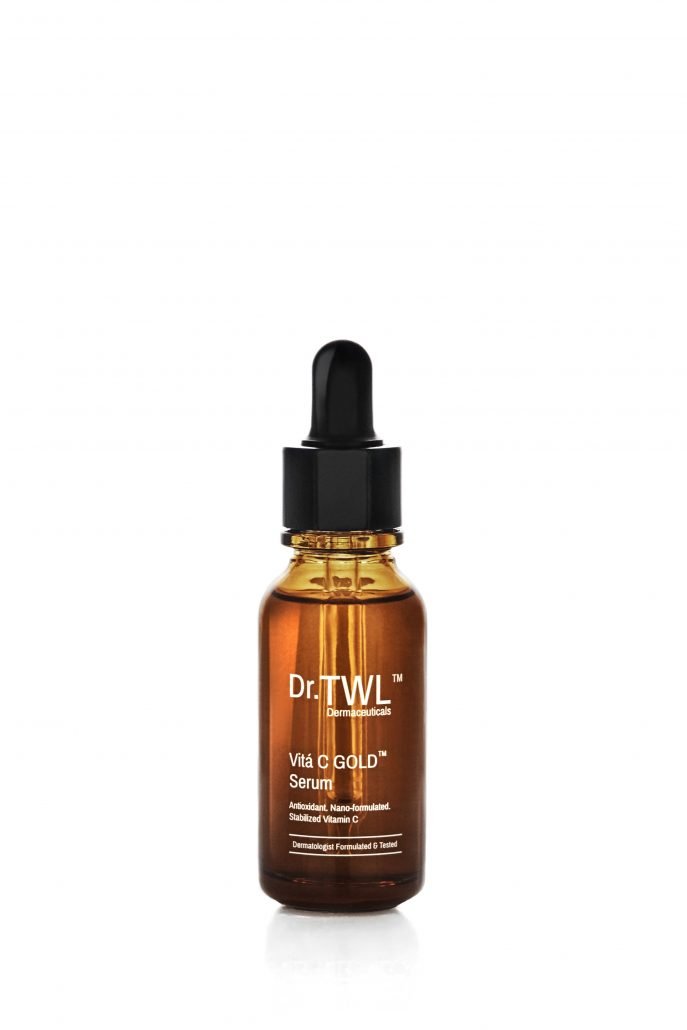
Best serum for microbiome skincare
The microbiome is the balance of good and bad bacteria on skin. Skin diseases like eczema, acne, rosacea or perioral dermatitis are linked to disturbances in the skin microbiome. Consequently, topical antibiotics and harsh antibacterial cleansers are one of the worst culprits to treat microbiome imbalances. Rather than these, the best approach is with bacteriostatic active ingredients. This means the active ingredient does not kill all the good and bad bacteria. Rather it blocks and reduces the growth of bad bacteria. Vitamin C serum is the best skincare serum for bacteriostatic activity. This means that when used in acne prone skin, it reduces growth of pathogenic (bad) bacteria.
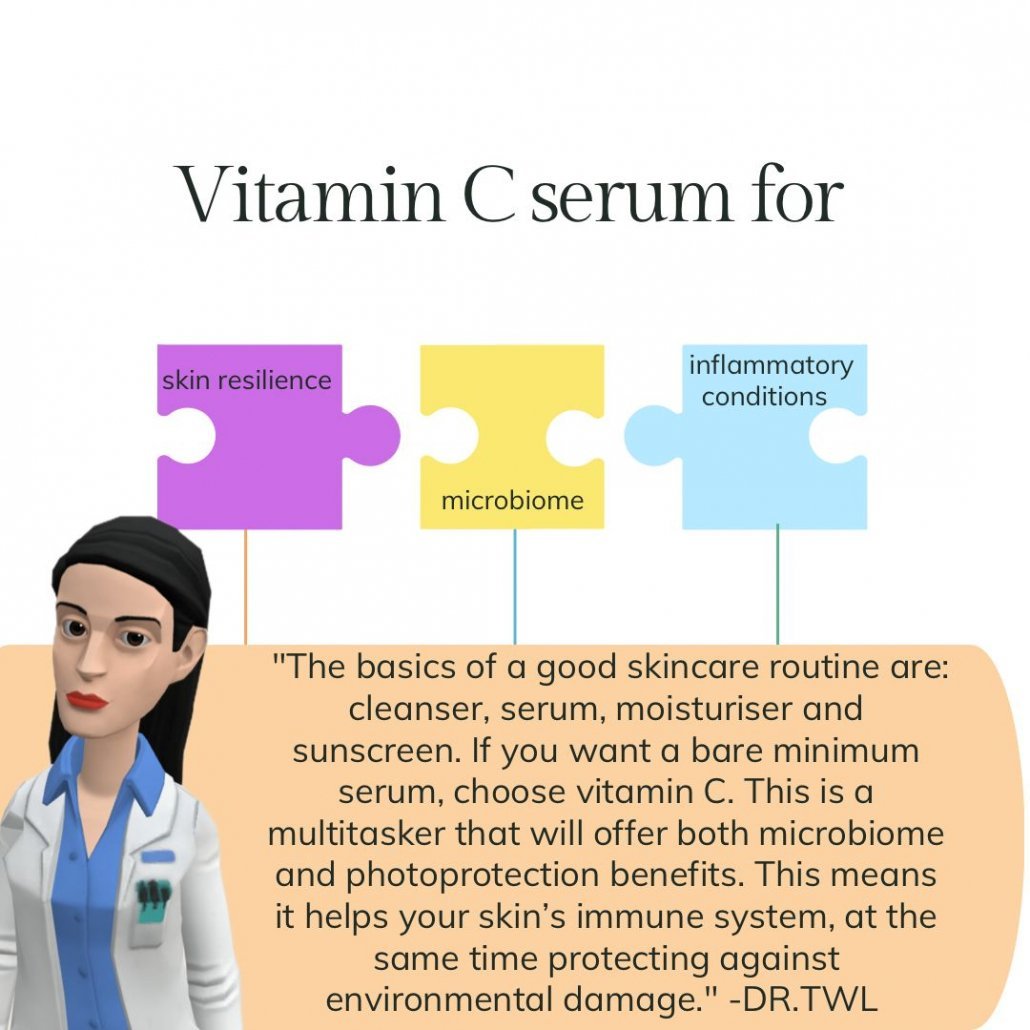
Why you should use a Vitamin C Serum. Vitamin C serums can be absorbed by skin to effectively reduce DNA damage caused by UV radiation. It boosts local skin immune function and reduces growth of acne causing bacteria. Not all Vitamin C serums are created equal. Our Vita C Gold Serum contains effective concentrations of 5% Sodium Ascorbyl Phosphate, a non irritating formula that is researched to block the growth of acne causing bacteria.
How to incorporate vitamin C into your skincare routine?
The basics of a good skincare routine are: cleanser, serum, moisturiser and sunscreen. If you want a bare minimum serum, choose vitamin C. This is a multitasker that will offer both microbiome and photo protection benefits. This means it helps your skin’s immune system, at the same time protecting against environmental damage.
A well formulated Vitamin C serum slows down skin aging
Cell senescence is the process of cells gradually losing the ability to function optimally over time. This is also a natural effect of skin aging. Accumulated DNA damage eventually causes cells to undergo apoptosis. Apoptosis is a form of cell death. The best vitamin C serum works effectively to reduce oxidative stress. Hence, it slows down the skin aging process.
Sodium Ascorbyl Phosphate over L-Ascorbic acid as the active ingredient
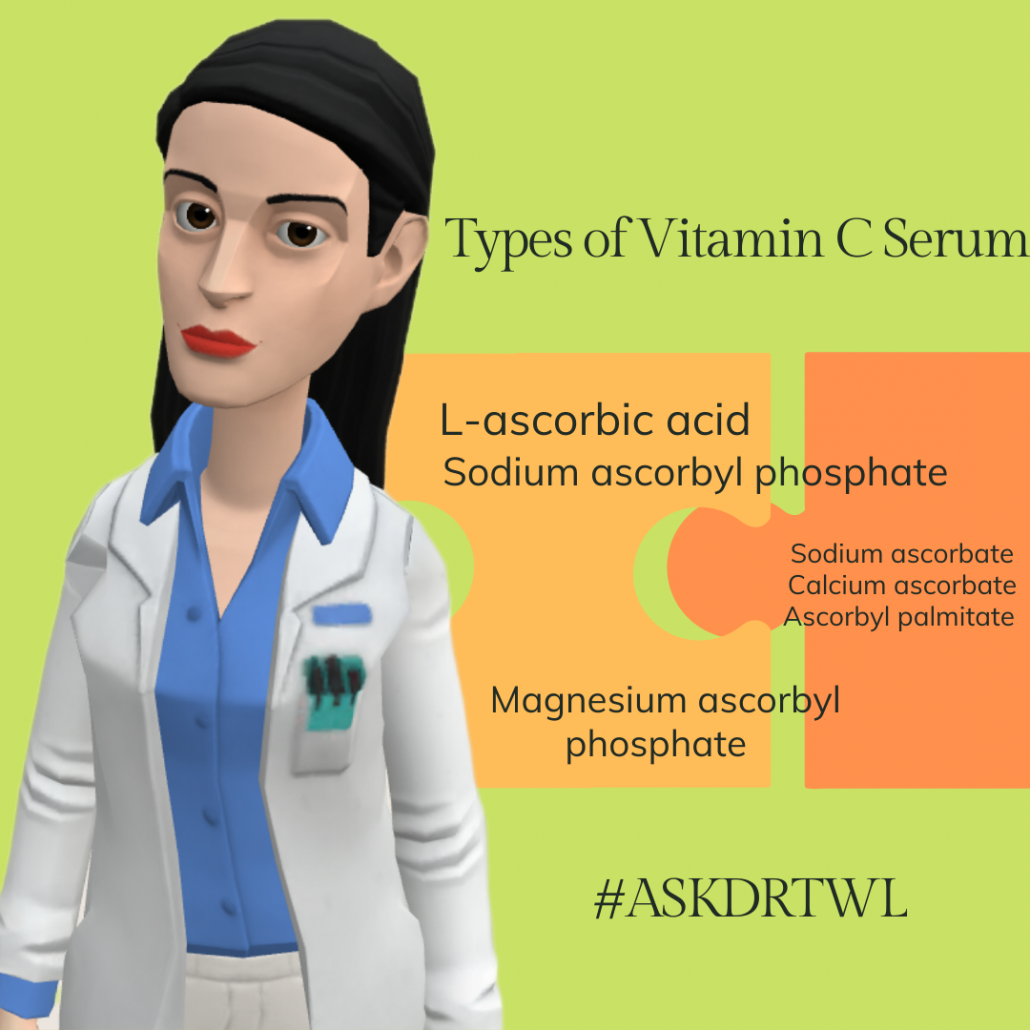
Why choose Sodium Ascorbyl Phosphate (SAP) as the preferred vitamin C derivative for your antioxidant serum? Sodium Ascorbyl Phosphate is a hydrophilic or water loving form of ascorbic acid. What this means is that it has improved stability. This form of Vitamin C has additional benefits of being highly effective in terms of its effects on skin. Magnesium ascorbyl phosphate similarly to Sodium Ascorbyl Phosphate. Both are proven to stabilize collagen in the dermis. This lifts and tightens skin.
The best Vitamin C serum for skin resilience and vitality
In a study comparing anti-wrinkle effects of sodium ascorbyl phosphate or L-ascorbic acid, both increased elasticity and wrinkles similarly. Sodium Ascorbyl Phosphate has lower irritation potential on skin compared to L-ascorbic acid. It has also been studied in melasma patients. In melasma patients, usage of Sodium Ascorbyl Phosphate showed a statistically significant improvement.
The best Vitamin C Serum formula is one that can help the skin to regain resilience. Resilience is an emerging concept to enhance the natural ability of the skin to fight oxidative stress. Having an antioxidant reserve reduces the formation of signs of photoaging such as wrinkles, hyperpigmentation and loss of elasticity.
The best anti aging Vitamin C serum for acne
There are studies which show the effectiveness of Sodium Ascorbyl Phosphate in the treatment of adult acne and teenage acne. Acne is one of the commonest skin care conditions. Acne is a genetic condition driven by inflammation. Sodium Ascorbyl Phosphate is a stable form of vitamin C. This ensures a constant delivery of vitamin C to skin. In addition, research shows that this has a strong antimicrobial effect on P. acnes, propionibacterium acnes, acne causing bacteria. In fact, Sodium Ascorbyl Phosphate has been shown to suppress the growth of P. acnes with a statistically significant log reduction with a 5% solution.
Dermatologist’s Top Tips on How to choose the best Vitamin C Serum
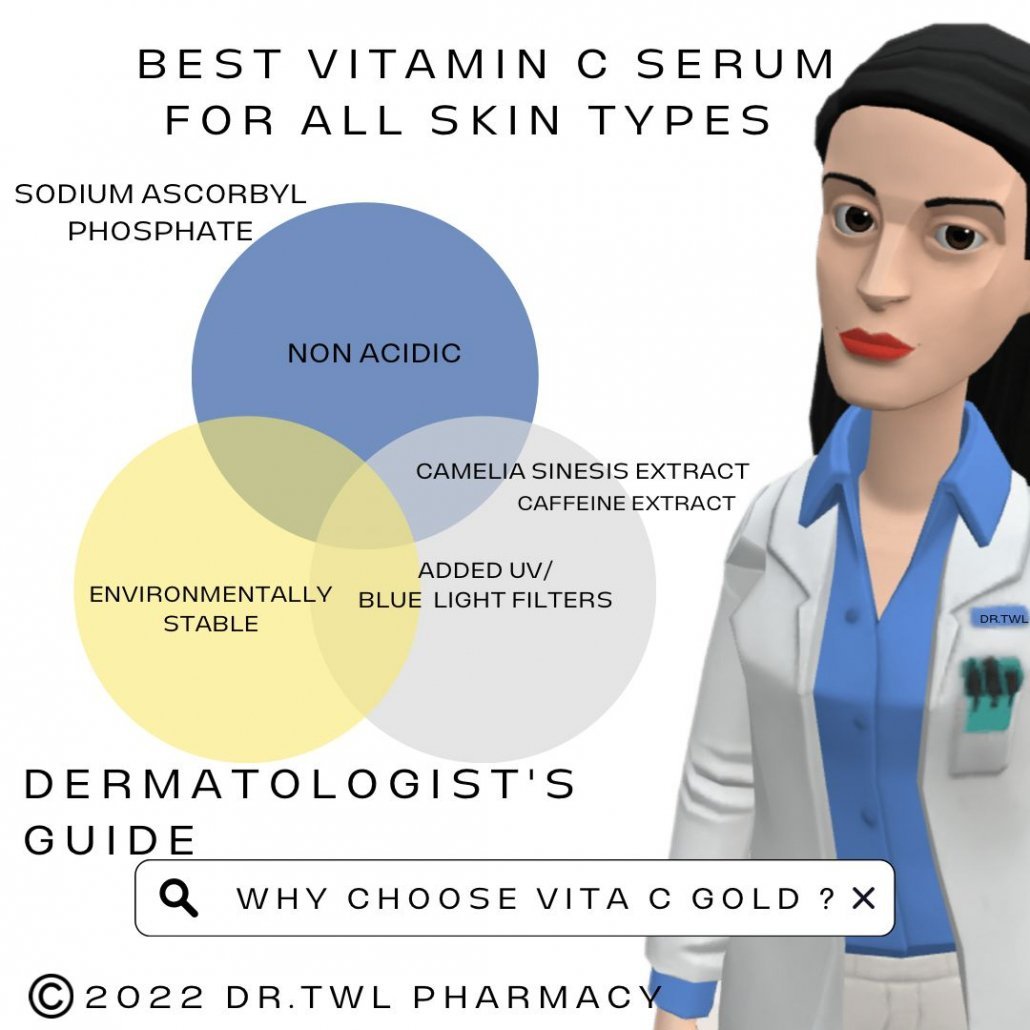
1. Type of Vitamin C active ingredient
There are a few main types of vitamin C present in serums. Most commonly, L-ascorbic acid, which is used in higher concentrations in order to be effective because the ingredient is quickly oxidised in air. It can potentially irritate sensitive skin. On the other hand, sodium ascorbyl phosphate and magnesium ascorbyl phosphate are preferable for those with sensitive skin. They can be used effectively in lower concentrations due to its inherent stability. Other forms include: sodium ascorbate, calcium ascorbate which are both mineral salts, and ascorbyl palmitate.
2. Concentration of Vitamin C serum matters
L-ascorbic acid must be formulated at pH levels less than 3.5 to be effectively absorbed by skin. In studies, the maximum concentration that can be absorbed is 20%. However, that can also increase the risk of skin irritation. The Vita C Gold serum contains 5% sodium ascorbyl phosphate which is the concentration reference in studies to inhibit growth of P. acnes, the acne that causes teenage and adult hormonal acne.
3. Other active ingredients boost effectiveness
The Vita C Gold incorporates Camelia Sinesis and Caffeine extracts that synergises with sodium ascorbyl phosphate. This boosts its antioxidant and photo protection properties. It also helps with regulating oil production.
4. Overall combination with other skincare
Dermatology studies show that when topical vitamin C serums are in combination with other forms of acne treatment, there is higher absorption. Sodium ascorbyl phosphate especially when when used together with retinoids had a synergistic effect. This can target the problems of scarring and inflammation found in both teenage and adult hormonal acne.
This article is written in conjunction with our founder, board certified Singapore dermatologist Dr. Teo Wan Lin. We hope you have enjoyed this read. If you decide to incorporate a Vitamin C serum into your skincare regimen, go through these tips to make sure you are getting the best Vitamin C serum suitable for your needs. For more on skincare active ingredients and latest product launches, follow our Instagram @drtwlderma and Tik Tok @drteowanlin.
References
- Lakra R, Kiran MS, Korrapati PS. Effect of magnesium ascorbyl phosphate on collagen stabilization for wound healing application. Int J Biol Macromol. 2021 Jan 1;166:333-341. doi: 10.1016/j.ijbiomac.2020.10.193. Epub 2020 Oct 26. PMID: 33122062. [PubMed]
- Mohammadi S, Shokri J, Ranjkesh M, Akbari Hamed S, Monajjemzadeh F. Comparative physicochemical stability and clinical anti-wrinkle efficacy of transdermal emulgel preparations of 5% sodium ascorbyl phosphate and or ascorbic acid on human volunteers. J Cosmet Dermatol. 2021 Jan;20(1):174-180. doi: 10.1111/jocd.13471. Epub 2020 Jun 23. PMID: 32383548. [PubMed]
- Kandil SM, Soliman II, Diab HM, Bedair NI, Mahrous MH, Abdou EM. Magnesium ascorbyl phosphate vesicular carriers for topical delivery; preparation, in-vitro and ex-vivo evaluation, factorial optimization and clinical assessment in melasma patients. Drug Deliv. 2022 Dec;29(1):534-547. doi: 10.1080/10717544.2022.2036872. PMID: 35156490; PMCID: PMC9040897. [PubMed]
- Klock J, Ikeno H, Ohmori K, Nishikawa T, Vollhardt J, Schehlmann V. Sodium ascorbyl phosphate shows in vitro and in vivo efficacy in the prevention and treatment of acne vulgaris. Int J Cosmet Sci. 2005 Jun;27(3):171-6. doi: 10.1111/j.1467-2494.2005.00263.x. PMID: 18492184. [PubMed]
- Ruamrak C, Lourith N, Natakankitkul S. Comparison of clinical efficacies of sodium ascorbyl phosphate, retinol and their combination in acne treatment. Int J Cosmet Sci. 2009 Feb;31(1):41-6. doi: 10.1111/j.1468-2494.2008.00479.x. PMID: 19134126. [PubMed]
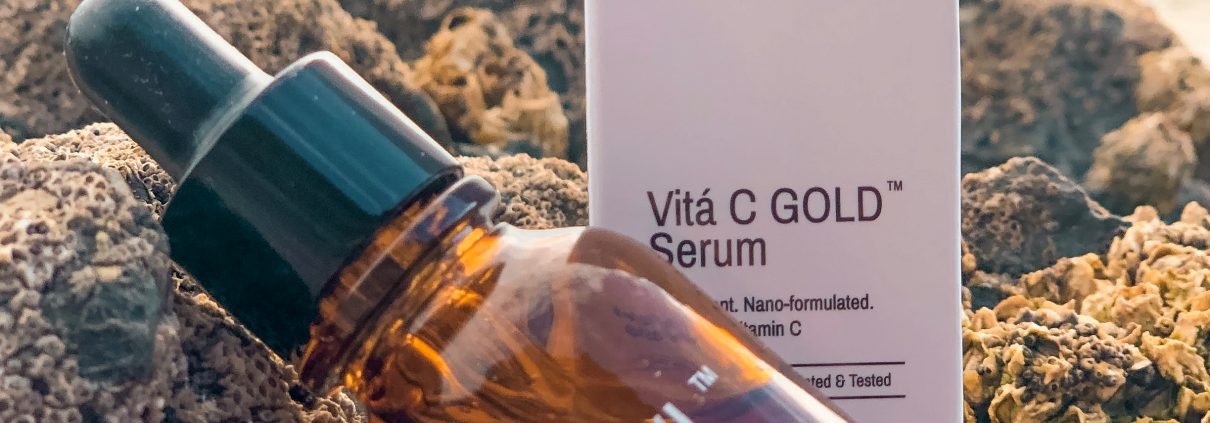








Leave a Reply
Want to join the discussion?Feel free to contribute!